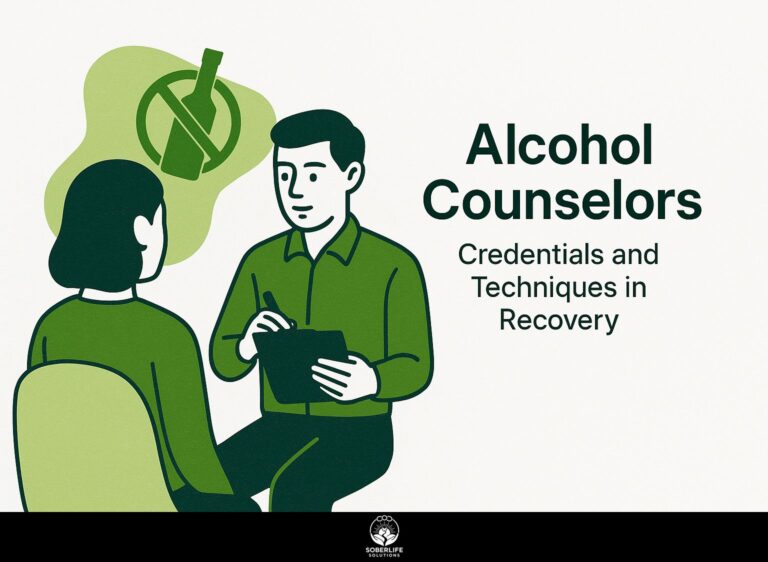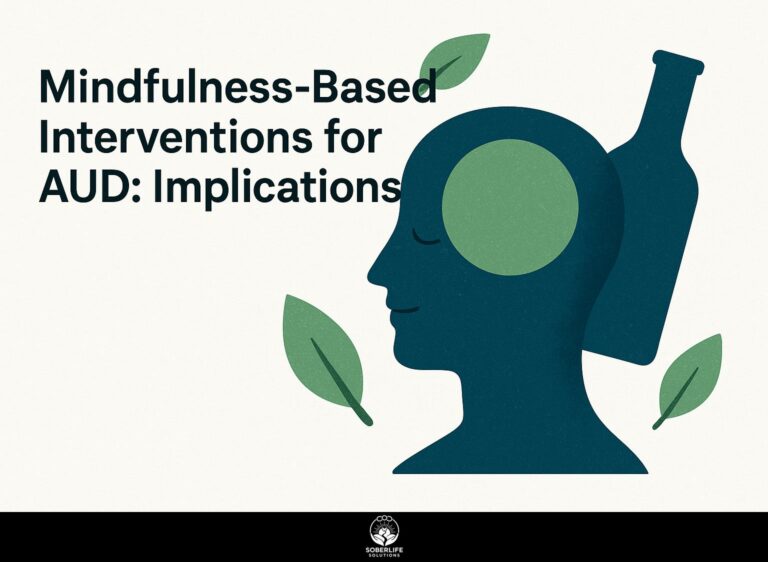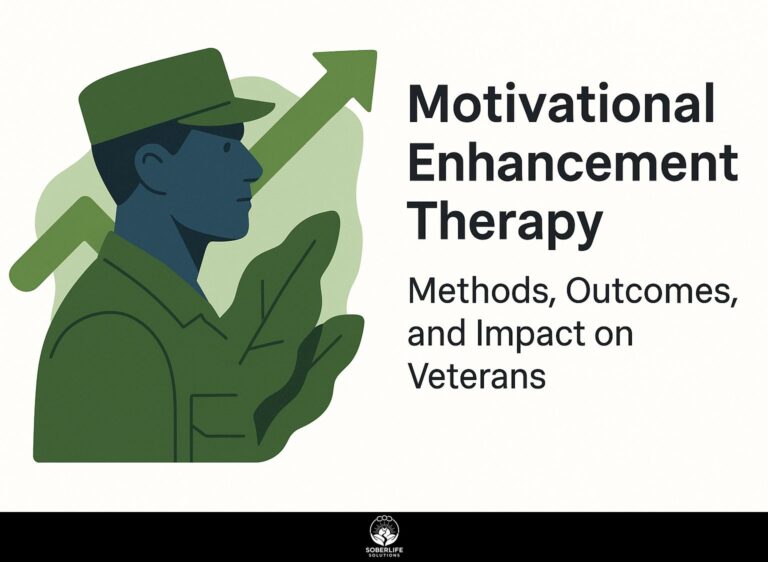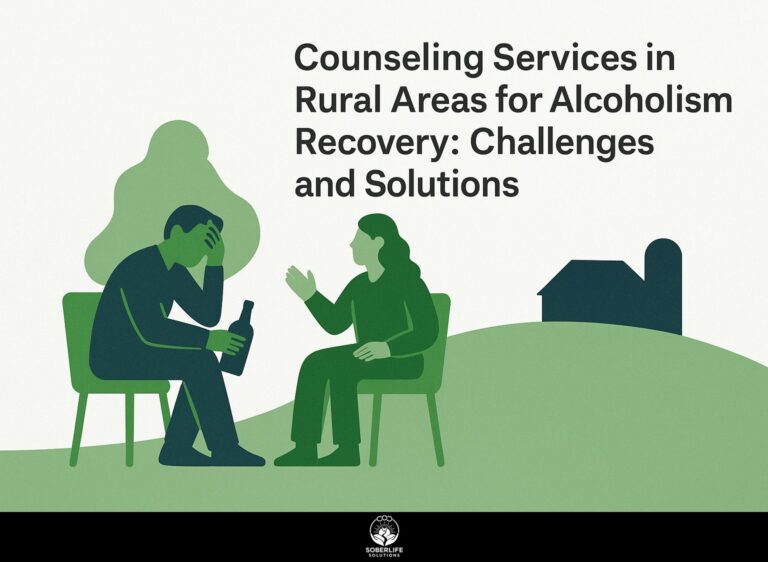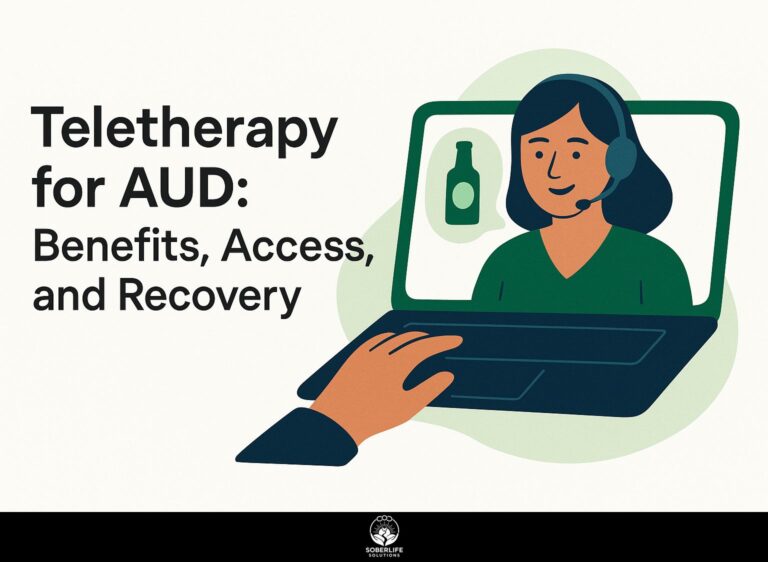Faith-Based Counseling for Alcoholism Recovery: Benefits and Providers
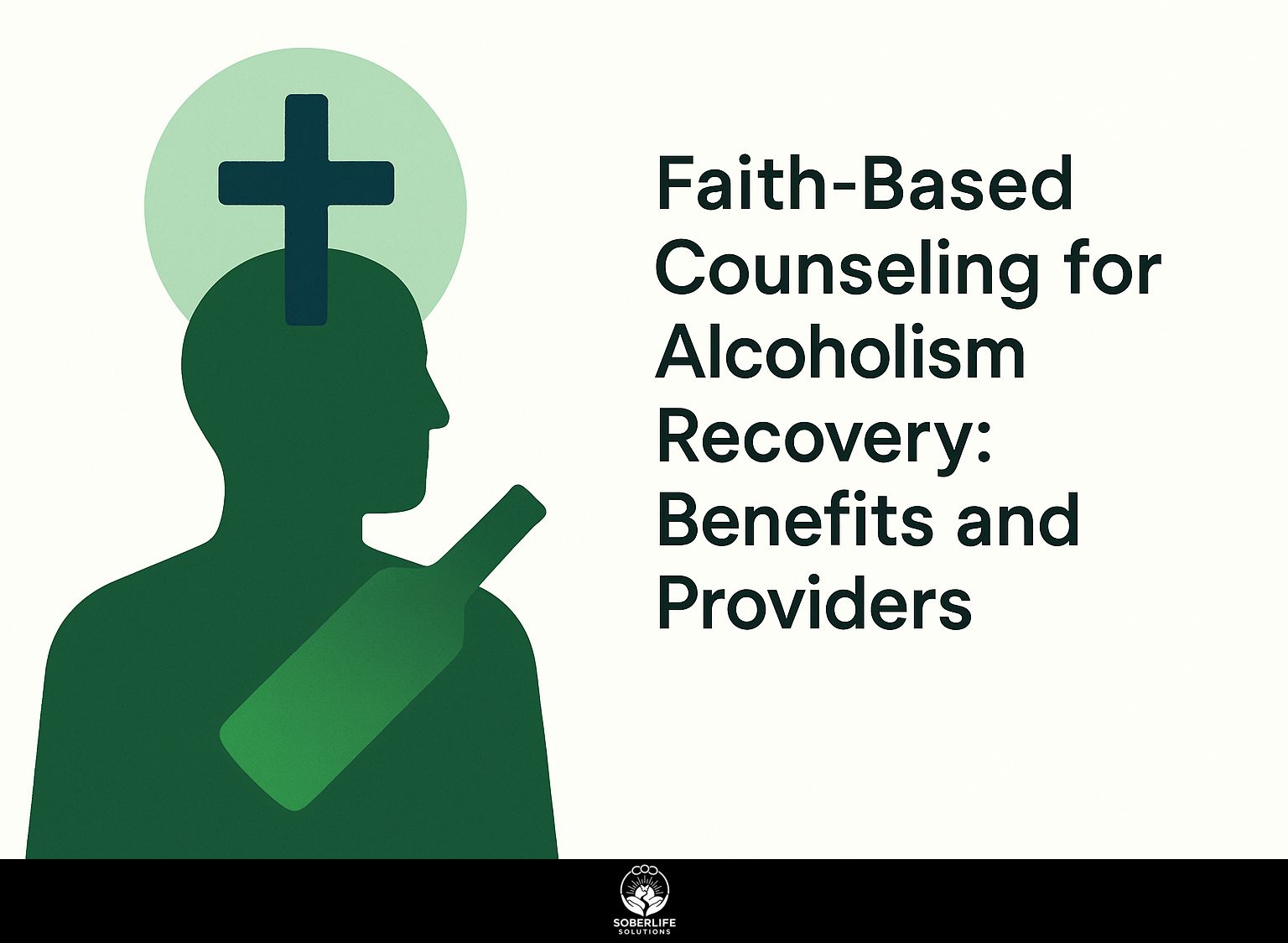
Faith-based counseling can be a powerful ally in addiction recovery, offering support rooted in spirituality. A lot of people dealing with alcoholism look to Christianity and organizations like Alcoholics Anonymous or Recovery Unplugged for help. This article looks at the special advantages of faith-based counseling, the various types of programs you can choose from, and ways to find the right provider for your recovery. Use a complete method that supports both mental and emotional well-being.
Key Takeaways:
Definition and Overview
Faith-based counseling is defined as therapeutic practices that integrate spiritual beliefs and religious values into psychological treatment.
This approach often concentrates on full recovery by addressing emotional, mental, and spiritual well-being. Effective methods include prayer, scripture study, and group fellowship, facilitating deeper connections among clients.
For example, many programs follow the 12-step method, using spiritual ideas to encourage personal development. Studies show that around 28% of recovery programs, according to the Substance Abuse and Mental Health Services Administration, use spiritual aspects to make treatment more effective, highlighting the importance of including faith in therapy. In fact, the Substance Abuse and Mental Health Services Administration discusses the significance of faith and community engagement in recovery efforts, underscoring the integration of spiritual dimensions in therapeutic practices.
Historical Context
Bringing together religion and counseling started in the early 1900s and grew a lot when 12-step programs became popular.
In 1935, Alcoholics Anonymous (AA) was established, offering spiritual guidelines to help with addiction recovery. The twelve steps stressed the importance of trusting a higher power, deeply affecting current therapeutic methods, as detailed by Medical News Today.
Throughout the years, this movement motivated many faith-based approaches, leading experts to mix psychological methods with spiritual advice. For example, many modern therapists use prayer, meditation, or biblical teachings in their sessions, showing that more people see spirituality as helpful in healing.
These integrations have supported a more complete approach to mental health, respecting both psychological and spiritual well-being.
Understanding Alcoholism
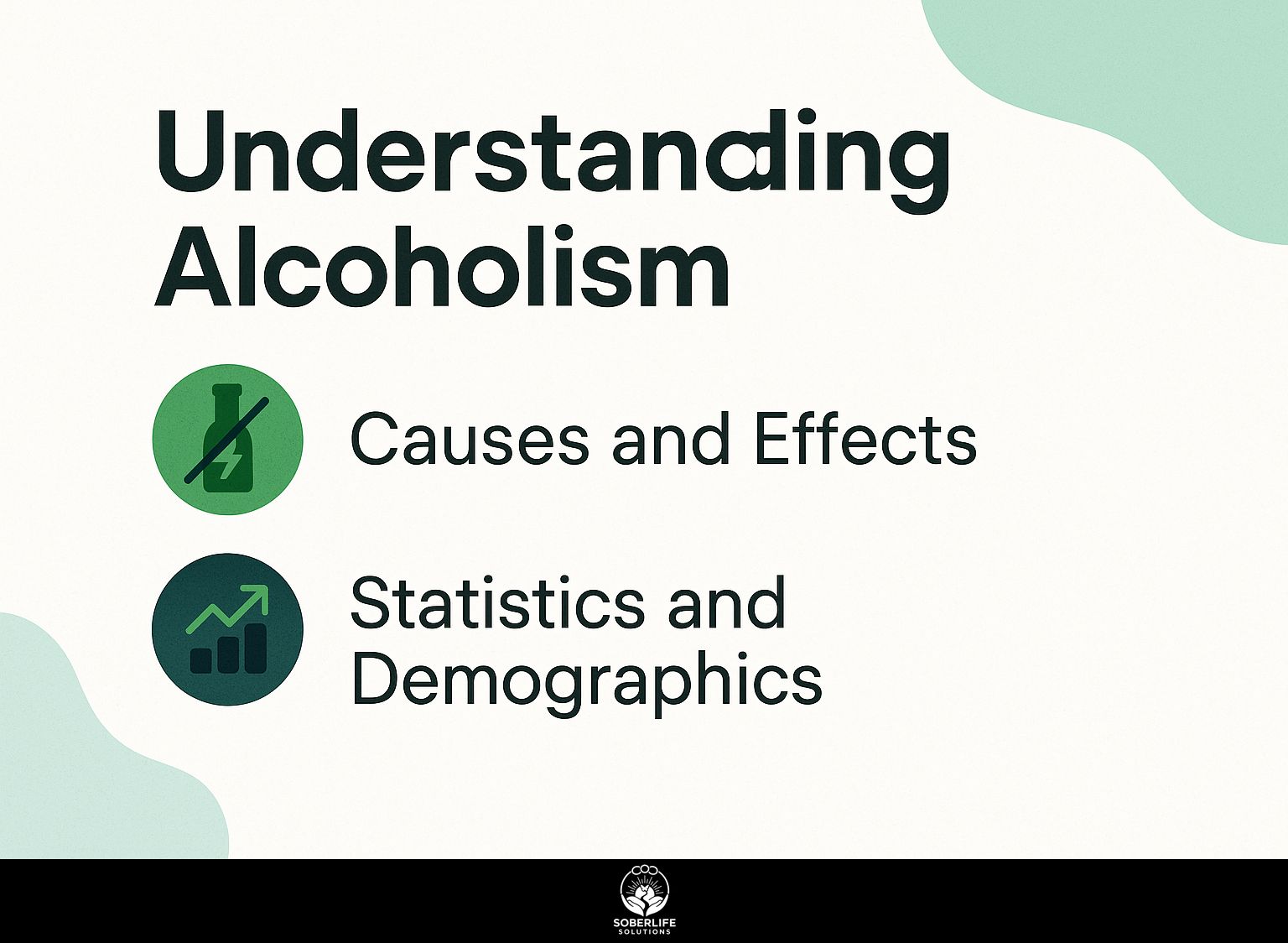
Recognizing the various aspects of alcoholism is important for creating effective treatment and recovery plans. See also: How to Manage Triggers in Alcoholism Recovery, an insightful exploration of handling environmental and emotional triggers.
Causes and Effects
Alcoholism results from a mix of genetic, environmental, and psychological reasons, causing serious impacts on people and their families.
Studies show that genetics are responsible for around 50% of the risk of alcoholism, while environmental factors like family relationships and social influences make up about 30%. Emotional distress can exacerbate these risks, often leading to strained relationships and increased familial pressures.
For example, children of alcoholics may experience feelings of neglect and anxiety, impacting their development.
Learning about these patterns can aid methods such as family therapy and support groups, which help families strengthen their bonds and deal with the main reasons behind alcoholism. This approach is supported by the Journal of the American Medical Association (JAMA), which provides insights into both genetic and environmental effects on alcoholism.
Statistics and Demographics
Recent statistics indicate that approximately 14.5 million adults in the United States struggle with alcohol use disorder, revealing a pressing need for effective treatment.
According to the Centers for Disease Control and Prevention, specific demographics are significantly affected by alcoholism. For instance, white adults have a higher prevalence rate at 8.3%, compared to 7.6% in Hispanic adults and 5.6% in Black adults.
Males are disproportionately affected, with a rate of 10.7% versus 3.9% for females. Focused efforts, like community outreach programs, work well with these groups, especially in cities where resources are scarce.
These findings highlight the need for customized treatment plans that meet specific community requirements.
Benefits of Faith-Based Counseling
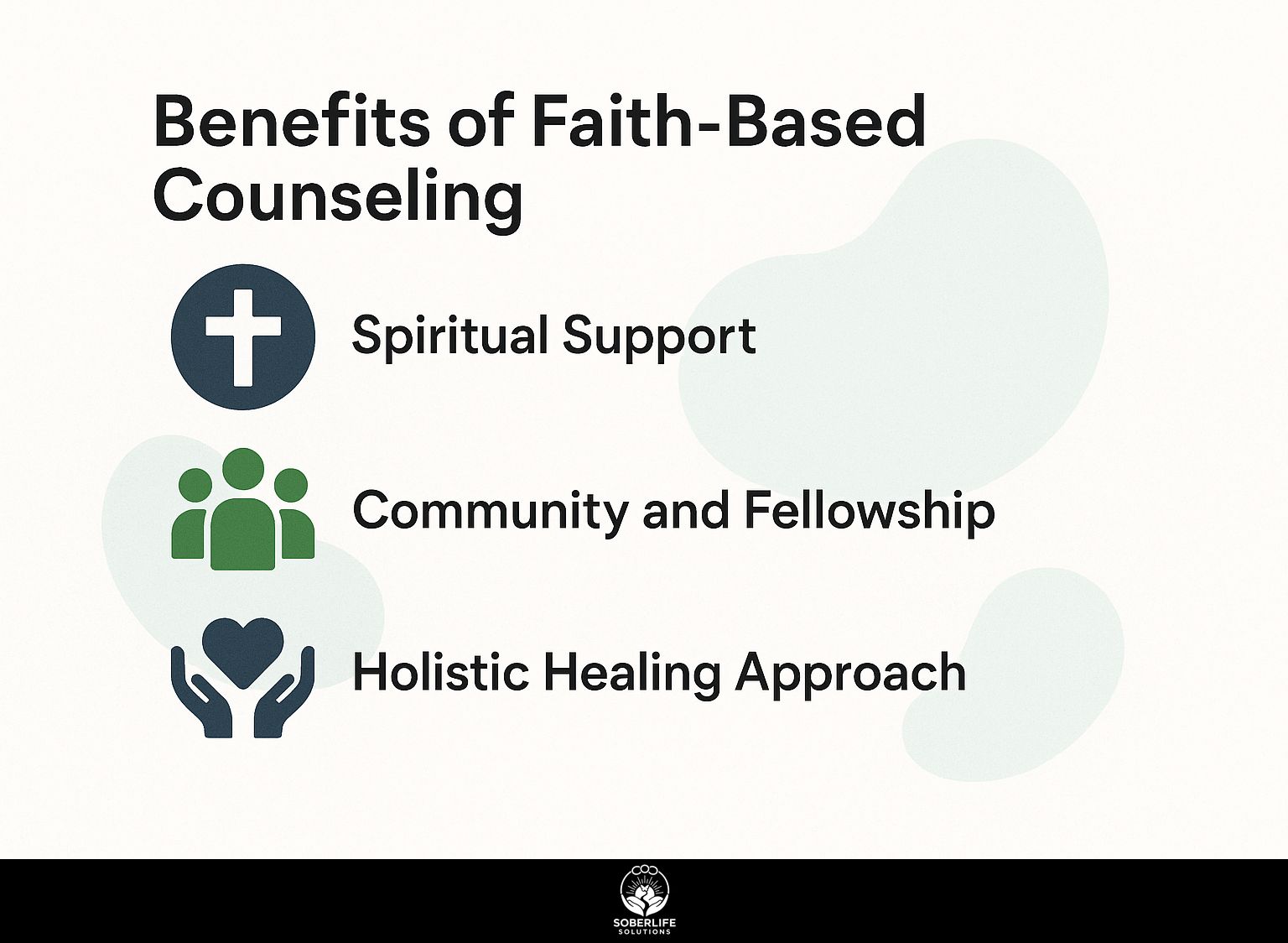
Faith-based counseling provides unique advantages by improving recovery results with spiritual support and involvement in community. For those interested in exploring complementary approaches, holistic therapies in alcoholism recovery offer techniques that can be integrated with spiritual methods to enhance healing.
Spiritual Support
Spiritual support in counseling provides clients with a sense of purpose and connection to a higher power, essential for overcoming addiction.
Using spiritual activities like Bible study and scripture recitation can greatly improve the recovery process. For instance, a study involving participants in a recovery program showed that those engaging in weekly Bible study sessions reported 30% higher resilience levels compared to those who did not.
Scripture recitation can serve as a daily affirmation, reinforcing positive beliefs and providing comfort during cravings. Including these practices in addiction therapy encourages emotional development and forms a supportive group, which is important for lasting success.
Community and Fellowship
A sense of togetherness and unity are key parts of faith-based counseling, creating a helpful space that promotes healing.
Support groups such as Alcoholics Anonymous (AA) and religious-based group therapy improve accountability and provide emotional support in different ways.
Members share personal stories that help people connect and feel less alone during recovery. Tools such as guided discussions and prayer circles encourage participants to reflect on their experiences and offer encouragement to one another.
One member mentioned, ‘In the group, I found people who really get my struggles, and the faith aspect keeps me hopeful.’ These connections give comfort and strengthen the commitment to staying sober.
Holistic Healing Approach
Faith-based counseling offers a complete healing method that deals with addiction as well as the spiritual and emotional aspects of recovery.
This method uses multiple successful approaches. For instance, psychotherapy can help clients process trauma, while pharmacotherapy may provide necessary medication to manage withdrawal symptoms.
On the spiritual side, activities like prayer, meditation, or joining faith groups build feelings of connection and purpose. These parts work together; psychotherapy deals with root problems, while spiritual practices build strength and hope, forming a complete plan for recovery.
Using tools such as Cognitive Behavioral Therapy (CBT) and spiritual guidance can greatly improve the healing process.
Types of Faith-Based Counseling Programs
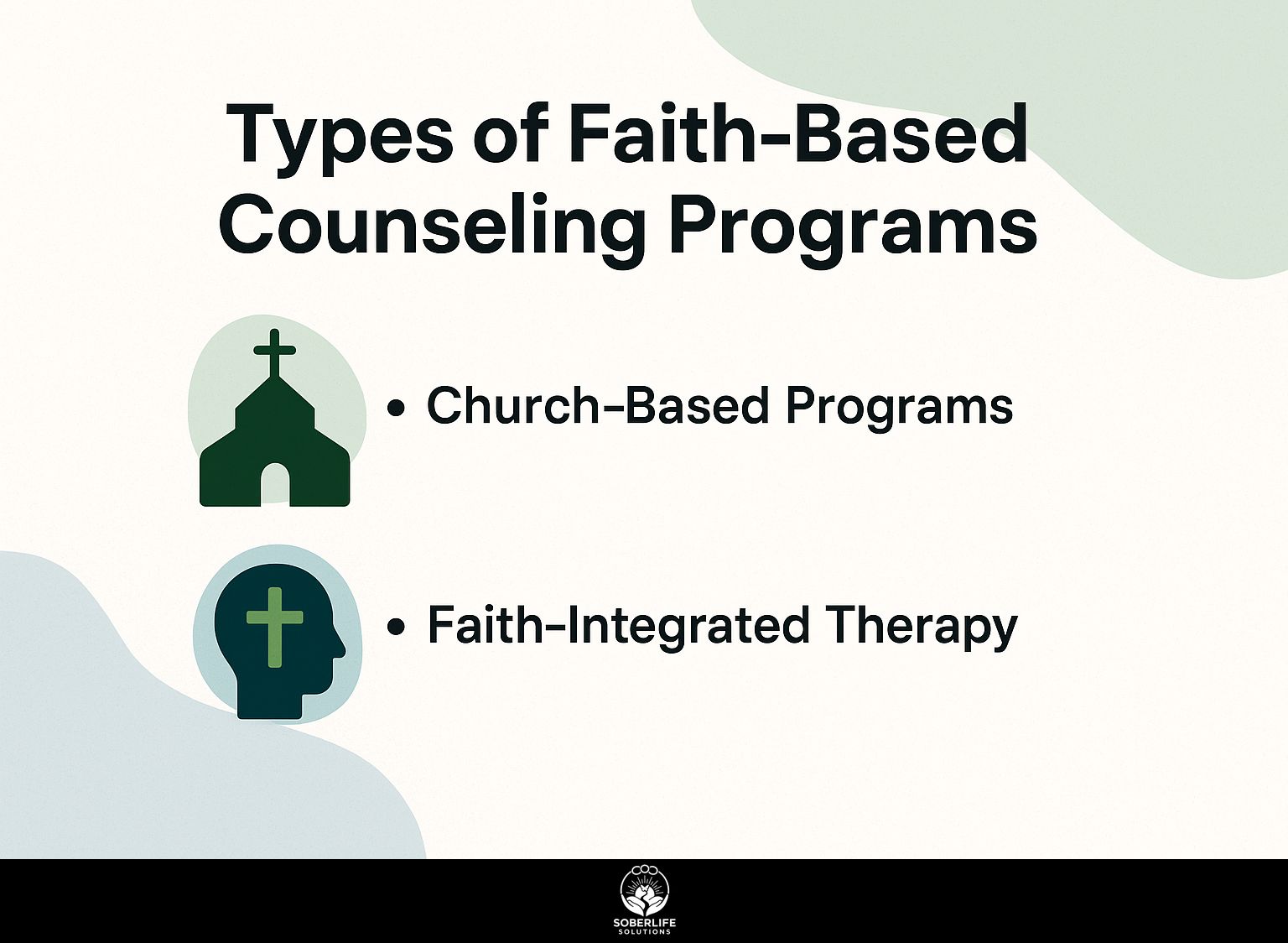
There are different faith-based counseling programs available, each designed to meet the unique needs of people looking for spiritual advice (our guide to peer support groups explores similar supportive frameworks).
Church-Based Programs
Church-based programs often provide counseling services integrated with worship activities, creating a supportive environment for healing.
These programs typically offer a variety of services including individual counseling, group therapy, and support workshops that align with the church’s values.
For instance, a weekly small group may focus on grief support, enabling members to share their experiences in a safe space.
Many churches have trained counselors who use spiritual evaluations to customize their method, including prayer and scripture to make the healing process more meaningful.
These programs offer emotional and spiritual support, helping people connect with others and grow personally.
Faith-Integrated Therapy
Faith-integrated therapy mixes standard psychological methods with spiritual elements to improve the success of treatment.
This approach has been shown to improve recovery outcomes in various studies. For instance, a 2016 study published in the ‘Journal of Clinical Psychology’ found that clients who included spiritual discussions in therapy reported greater reductions in anxiety and depression.
Effective methods in faith-integrated therapy include:
- Guided meditations
- Prayer
- Exploring personal beliefs during sessions
Therapists may use faith-related materials, such as scriptures or spiritual books, to encourage thinking and relationships. Including faith can make the healing process more complete for many people.
Finding Providers of Faith-Based Counseling
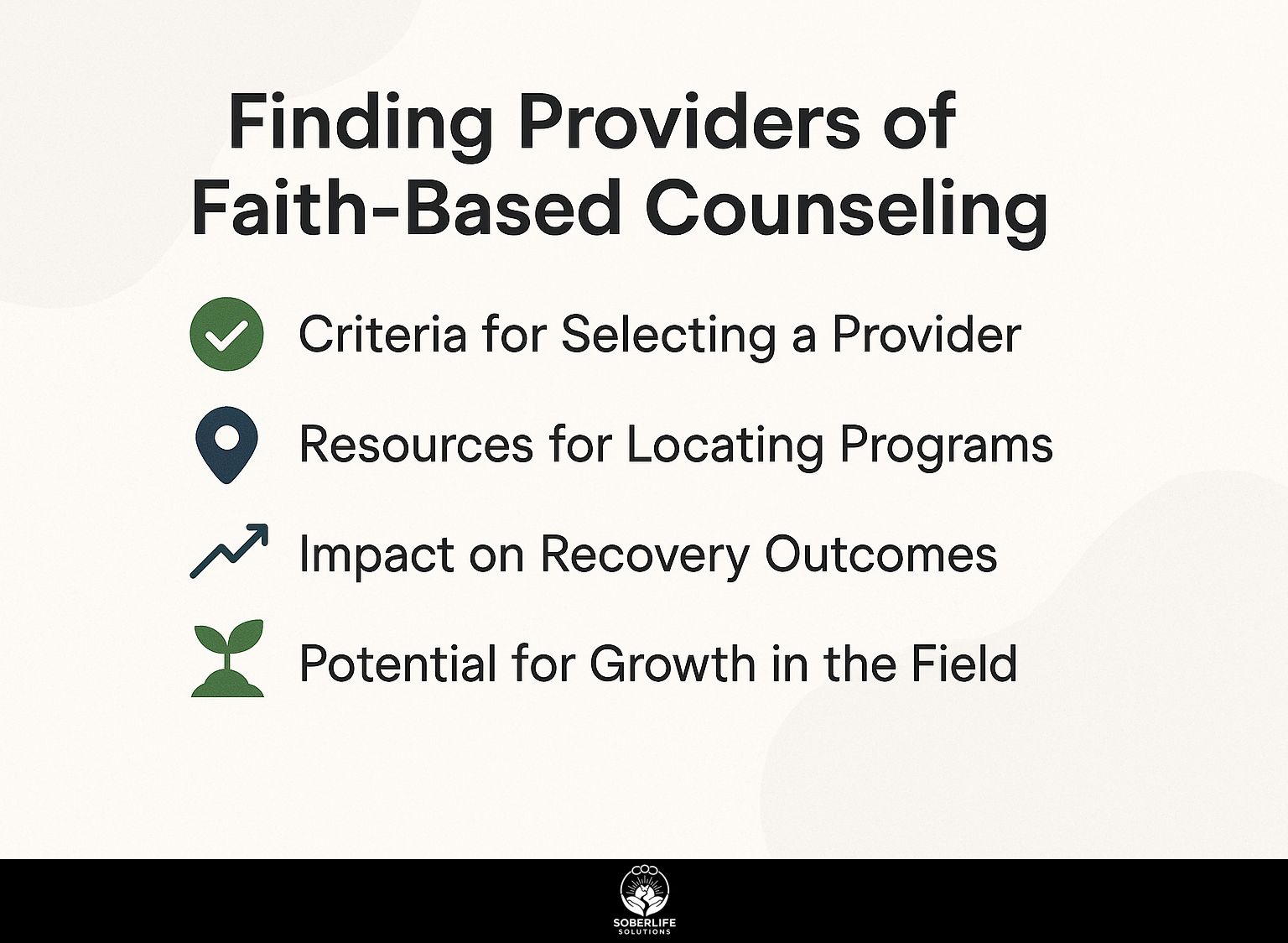
It’s important to find knowledgeable religious counselors for those who need thorough help in their recovery.
Criteria for Selecting a Provider
When selecting a faith-based counselor, consider qualifications, experience, and alignment with personal spiritual beliefs.
Start by evaluating their credentials, such as a license in counseling or social work. Look for specific experience in addiction issues-ideally, they should have worked in a recovery program.
Find out how well they grasp spiritual practices and if they include prayer or meditation in sessions. Make sure their way of doing things matches what you believe in.
Get feedback from previous clients to gauge effectiveness and rapport. These elements will provide a helpful and meaningful counseling session.
Resources for Locating Programs
Many websites and community groups can help find religious counseling programs suited to personal needs.
Start by exploring the Substance Abuse and Mental Health Services Administration (SAMHSA) website, which offers a searchable database of treatment centers nationwide, including those with faith-based approaches.
Local church directories often list counseling resources available in your area, while websites like Psychology Today allow you to filter therapists by faith orientation. Building connections at community centers can lead to useful recommendations.
These resources help people find support that matches their values and beliefs.
Impact on Recovery Outcomes
Studies indicate that individuals engaged in faith-based counseling experience higher rates of long-term recovery compared to secular approaches.
For instance, a study published in the Journal of Clinical Psychology revealed that faith-based participants had a recovery rate of 85%, while secular methods showed 60%. These findings highlight the importance of integrating spirituality alongside traditional therapies.
Counselors can facilitate this by exploring clients’ spiritual beliefs, encouraging the use of prayer or meditation, and connecting them with faith communities for additional support. Engaging with peer support groups can offer additional layers of community and encouragement.
Tools such as the Faith and Spirituality Scale can help assess a client’s beliefs and adjust the therapy approach to improve their recovery process.
Potential for Growth in the Field
As the awareness of addiction and mental health evolves, the demand for faith-based counseling is expected to grow significantly.
Mixing spiritual practices with established therapy offers a thorough approach to recovery. For example, therapists can use prayer, meditation, and scripture study in treatment plans to encourage emotional healing.
Utilizing resources like the Substance Abuse and Mental Health Services Administration (SAMHSA) guidelines can help identify best practices. Training programs that combine spirituality and psychology, like those provided by the American Association of Christian Counselors, will improve practitioners’ skills.
Combining faith and therapy provides a complete healing process for clients.
Frequently Asked Questions
What is faith-based counseling for alcoholism recovery?
Faith-based counseling for alcoholism recovery is a type of therapy that uses religious or spiritual beliefs and practices during the treatment of alcoholism. It involves getting support from a religious counselor to help individuals overcome their addiction and achieve long-term recovery.
What are the benefits of faith-based counseling for alcoholism recovery?
Faith-based counseling for alcoholism recovery has several advantages. It provides community and support, helps with deeper spiritual or emotional issues linked to addiction, and offers a well-rounded approach to recovery that includes mind, body, and spirit.
Who can benefit from faith-based counseling for alcoholism recovery?
Faith-based counseling for alcoholism recovery can benefit anyone struggling with alcohol addiction, regardless of their religious beliefs. It can be especially helpful for individuals who desire a spiritual component in their recovery process or for those who have not found success with traditional therapy methods.
What types of services do faith-based counselors provide for alcoholism recovery?
Faith-based counselors can provide a range of services for alcoholism recovery, including individual and group counseling, support groups, pastoral counseling, and spiritual guidance. They might include prayer, meditation, and other religious activities in their therapy sessions.
What should I look for in a faith-based counselor for alcoholism recovery?
Look for a faith-based counselor for alcoholism recovery who shares your religious beliefs and values. It’s important to confirm they have a license and have worked with people dealing with addiction.
Are there specific faith-based providers or organizations that offer alcoholism recovery services?
Yes, there are many faith-based providers and organizations that specialize in offering alcoholism recovery services. These may include churches, religious organizations, and treatment centers that integrate faith-based approaches into their programs. It’s important to research and find a provider that best fits your needs and beliefs.

